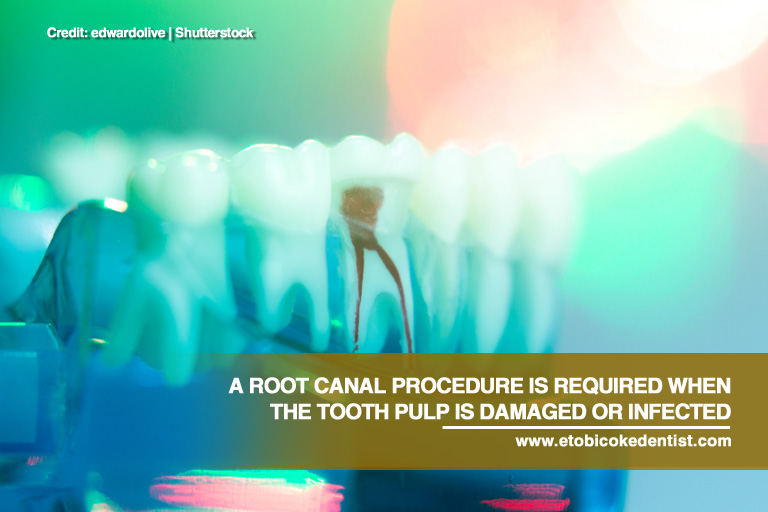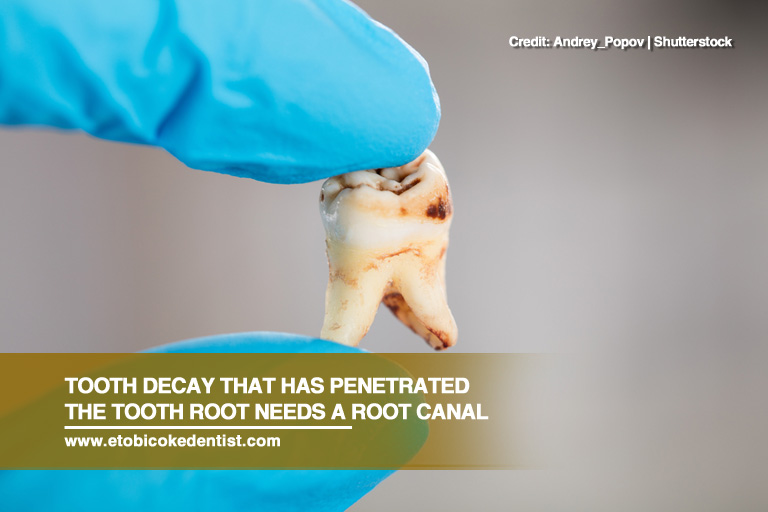
The teeth have one of the most important functions in the oral region. It does not only affect our ability to speak and eat, but it can also shape our jaw and facial structure. Given this wide range of use, the teeth are also, unfortunately, subject to constant beating, accelerating wear and tear and leading to inflammation, infection, or decay.
Every year, millions of root canal treatments are being conducted worldwide to save a tooth from decay and infection. More than 25 million are in North America alone. Knowing if a root canal is necessary can be difficult during the early stages of a dental health issue, and physical symptoms don’t manifest until the issue has advanced.
If you’re wondering, “Do I really need a root canal?”, here are some important things you need to know.
What Is a Root Canal?

A root canal procedure is a type of endodontic treatment used to repair and save a tooth that has been severely decayed or infected. It occurs when the tooth pulp is damaged and exposed to bacteria. The bacterial infection can cause an abscess to form and spread.
During the procedure, your dentist will:
- Remove the bacteria and clean the decay from the tooth pulp, root, and nerve
- Disinfect the area with antibiotics
- Fill the empty roots
- Seal the area to prevent further decay
A root canal can be administered by a general dentist.
What Are the Symptoms of Needing a Root Canal?
More often than not, symptoms may appear only when the infection has gotten worse, which is why it is strongly advised to have a regular dental check-up to know whether you need a root canal for sure — but what exactly causes the need for a root canal?
If you notice any of these tell-tale signs, see your dentist as soon as possible to have it examined and treated:
- Persistent Pain

Pain while doing normal activities, like drinking or eating, is one of the primary indicators that something is wrong with your tooth. Persistent pain or pain that goes away but always returns may mean that the problem goes beneath the surface level. You may feel the pain in the bone itself or radiating to your face, jaw, or other teeth.
Tooth pain can also be caused by other factors besides root canal, including,
- Cavity
- Gum disease
- Sinus problem
- Damaged filling
- Impacted tooth
Seeing your dentist is the best way to get the necessary treatment. Especially with persistent pain, early diagnosis and treatment are needed to get a better chance of saving the tooth.
- Chipped or Cracked Tooth
Many people dismiss a chip or a crack in their tooth as a cosmetic concern, which is why they don’t always seek dental treatment when it happens. A tooth can get chipped for a variety of reasons:
- An accident
- Contact sport
- Biting on something hard
- When dental procedures go awry
When the tooth is cracked or chipped, the nerves beneath the surface of the tooth are exposed and vulnerable to infection. The infection can subsequently enter the bloodstream and spread.
Even if your tooth doesn’t chip or crack, an impact on your teeth can still injure and damage the nerves. The nerves can become inflamed, causing pain and sensitivity, which may require a root canal.
- Sensitivity to Heat or Cold

Another common root canal symptom is tooth sensitivity. Does your tooth ache when you eat warm food or drink hot beverages? Perhaps, there’s a sharp, intense pain whenever you eat ice cream or drink ice-cold water? If so, this is a problem.
Pain and sensitivity when eating or drinking something hot or cold is an indication that the blood vessels and nerves in your tooth might be infected or damaged. If the pain remains for a long period of time, even after you stopped eating or drinking, you may need a root canal treatment to fix it.
- Swollen Gums
While gums can swell after flossing or brushing too hard, there’s also a chance that the swelling may be caused by acidic waste products of dead pulp tissues. Have a dentist examine your gums to see if inflammation is to blame.
You may also notice a little pimple on your gum, called a gum boil, parulis, or abscess. This pimple can also discharge pus from the infection in your tooth, which can have an unpleasant taste and make your breath smell bad.
- Tooth Discolouration
A discoloured tooth can be a result of poor dental hygiene, food and drink stain, or nerve damage beneath your tooth’s surface. Trauma to the tooth or the decay of internal tissues can harm the roots and give your tooth a grey to black appearance. The tooth pulp dies if it doesn’t receive enough blood supply, necessitating a possible root canal.
- Deep Decay

A cavity neglected for so long can spread down into the nerves and root of your tooth. At this point, no amount of brushing or flossing can solve a deep decay. Once the decay has settled within the base of your tooth, root canal treatment is likely the only option to save your smile.
- Tooth Mobility
When a nerve dies, acidic waste products can soften the surrounding bone of the dying tooth. This the reason why your tooth may feel looser when it is infected. Mobility of one or more teeth can be a signal of more deep-seated issues that may need more than just a root canal procedure.
How Do I Know If I Need a Root Canal or a Filling?

Tooth filling or root canal treatment both work to fix a cavity, dental decay, or a fractured tooth.
The difference being, tooth filling is recommended for smaller or minor tooth cavities or decay that hasn’t reached the pulp or root of the tooth. On the other hand, a root canal is required for cases when fillings are no longer viable. This is especially true when the decay has reached the pulp inside the tooth, causing inflammation or infection.
The signs for needing either a dental filling or root canal can be similar and hard to distinguish. Both of their symptoms include tooth sensitivity, tooth pain, and tooth decay. There are also instances where no symptoms manifest at all. A dental examination is crucial to determine which treatment is best for your condition.
How Long Does a Root Canal Take?
The foremost purpose of a root canal procedure is to relieve the pain from infection. Contrary to popular belief, a root canal is not painful and feels no different than having a deep filling.
The length of the procedure depends largely on the problem. It could also require 1 or 2 appointments to complete. On average, the treatment takes 30 to 60 minutes, while more complex cases can take approximately 90 minutes.
If you are experiencing dental issues and suspect you might need a root canal, don’t worry and see your dentist right away. The truth is, prolonging the problem will only hurt you and damage your tooth even more. With the right dentist, the experience will be pleasant and the discomfort will subside in a few weeks.
Go for regular check-ups and preventive care to detect any potential problems before they become more serious. Book your appointment today with Dr. Mark Rhody Dentistry at (416) 231-4281.

Very interesting subject, regards for posting.Money from blog